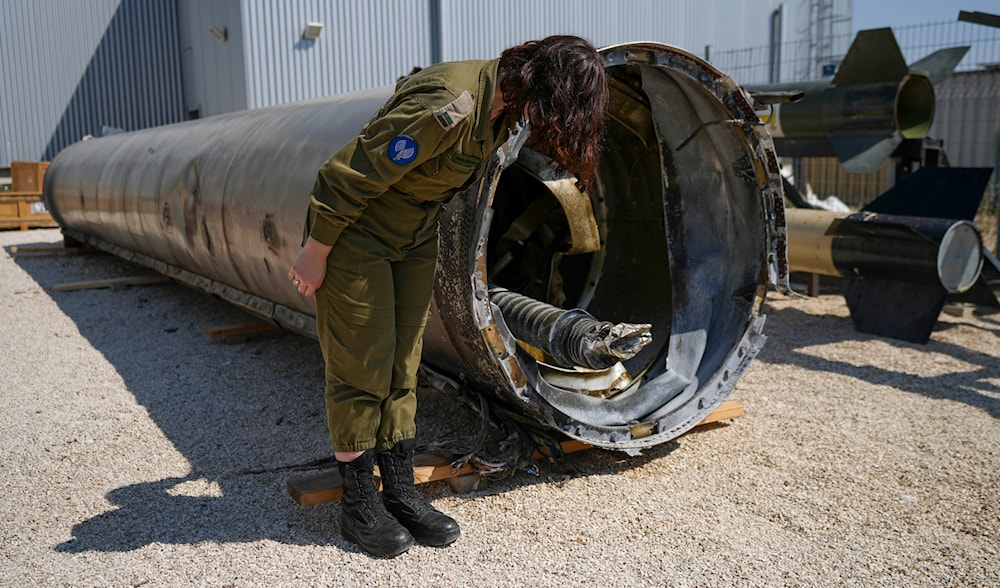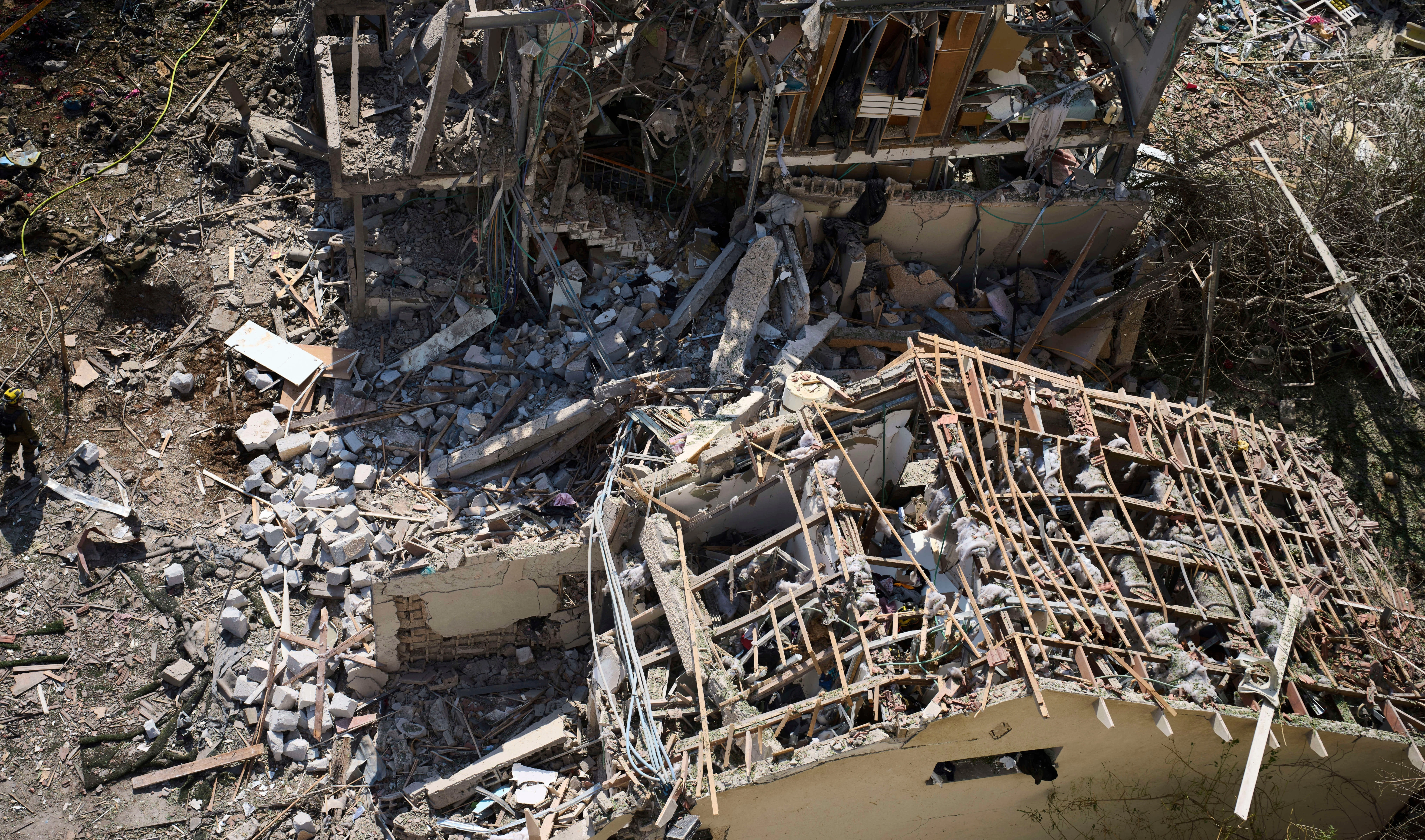Hanegbi: Iran has far more missiles than estimated; in the thousands
"Israel" acknowledges Iran's possession of thousands of ballistic missiles, revealing the scale of Tehran’s defensive capabilities amid the Israeli war on Iran.
-

Israeli military deputy head of the IOF International press department, first lieutenant Masha Michelson, display to the media one of the Iranian ballistic missiles in Julis army base, southern “Israel”, Tuesday, April 16, 2024. (AP)
In a revealing statement, Netanyahu’s "National Security" Advisor Tzachi Hanegbi acknowledged that Iran possesses “thousands of ballistic missiles,” a figure that vastly exceeds previous estimates of 1,500 to 2,000.
Speaking to "Israel's" Army Radio, Hanegbi framed the development as a significant challenge, admitting, “This is not a battle that over the long term will be able to bring an end to the Iranian threat.”
Tehran fired more than 200 missiles at "Israel" on Friday and Saturday as part of its retaliation, many of which have penetrated "Israel's" renowned air defenses, forcing the military to warn its people that the defenses were "not hermetic", according to The Telegraph.
The Iranian airstrikes underscore the challenges faced by even the most advanced air defense systems in countering ballistic missiles, which travel at hypersonic speeds exceeding Mach-5, leaving few surface-to-air missile batteries capable of effectively intercepting them.
Military force alone can’t destroy Iran’s nuke program: Hanegbi
Hanegbi's recent remarks came shortly after he conceded last Friday that "Israel’s" military efforts alone would not be sufficient to eliminate Iran’s nuclear program. He stressed that while airstrikes may target infrastructure, the broader goal is to pressure Iran into relinquishing its nuclear ambitions altogether.
“This cannot be done via kinetic means,” Hanegbi said, emphasizing that military action will not dismantle Iran’s missile or nuclear capacities. He referred to past cases like Libya and South Africa, where governments abandoned nuclear programs through political decisions rather than external force.
Operation True Promise 3: Iranian missiles rain over Tel Aviv, Haifa
A fresh wave of Iranian missile strikes has hit multiple locations across the occupied territories, including Tel Aviv, Haifa, Bnei Brak, and Petah Tikva, triggering widespread panic and power outages, Israeli media reported early Monday.
An entire building collapsed in Bnei Brak, east of Tel Aviv, with dozens of injuries reported in the wake of an Iranian missile strike that targeted the area. pic.twitter.com/1FTkLZYI5y
— Al Mayadeen English (@MayadeenEnglish) June 16, 2025
The Israeli Home Front Command issued urgent instructions to settlers, urging them to remain close to protected areas and immediately enter shelters upon hearing warning sirens. This came amid a barrage of alerts sounding across both the northern and southern regions of occupied Palestine.
Al Mayadeen's correspondent confirmed that a new salvo of missiles was launched from Iranian territory toward occupied Palestine at Monday dawn.
Israeli media outlets have reported missile impacts in at least four locations in the Gush Dan region, including central Tel Aviv. Loud explosions were heard in central occupied Palestine and Haifa, with the Red Star of David (Magen David Adom) emergency service receiving a flood of calls from both the coastal and central areas.
Large explosions reported
Haifa was reportedly hit by several missiles, one of which resulted in a large explosion. Tel Aviv and Bnei Brak also suffered direct impacts, with reports indicating at least four Iranian missiles struck the greater Tel Aviv area. In Petah Tikva, a missile hit a residential building, causing severe damage.
A video circulated on social media shows a fire that broke out at the Haifa power station following an #Iranian missile strike. pic.twitter.com/uD8nNQRZrX
— Al Mayadeen English (@MayadeenEnglish) June 16, 2025
Eyewitness accounts and footage on social media captured scenes of chaos, with sirens sounding again in Tel Aviv, Yafa, Modi’in, Herzliya, and Hasharon. Residents described the situation as resembling “judgment day", with blackout conditions and emergency services stretched thin.
The Israeli military has warned settlers not to film the sites where missiles have landed, citing "security concerns". Meanwhile, massive power outages were reported across central regions of the occupied territories, complicating rescue and response efforts.
As of this report, Israeli sources have confirmed multiple serious injuries due to the Iranian missile strikes, but exact casualty numbers remain unclear. Some Israeli media outlets have put the toll at three killed with dozens of others wounded, while others have suggested that as many as 10 were killed due to the barrage.
Read more: Iran has not yet used its most powerful weapons, top official says

 4 Min Read
4 Min Read









